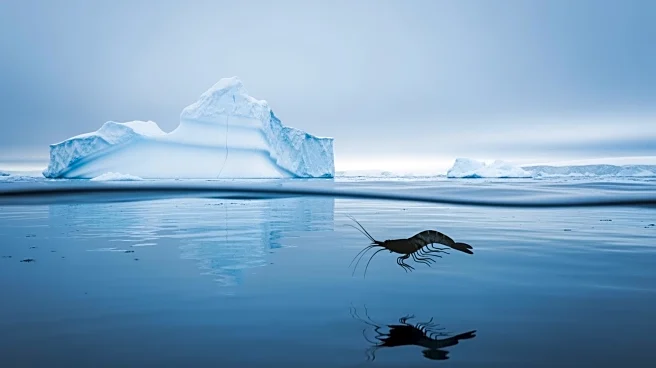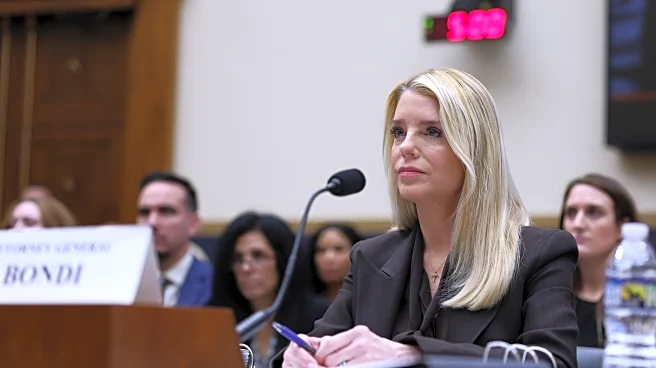What's Happening?
The 44th annual meeting of the Commission for the Conservation of Antarctic Marine Living Resources (CCAMLR) concluded without reaching a consensus on krill fishing regulations. Despite strong opposition
from conservation-minded countries like Chile, Argentina, and the European Union, efforts to expand krill fishing in predator-rich areas were resisted. The meeting focused on two key issues: the proposed marine protected area (MPA) for the Antarctic Peninsula and the management of the krill fishery. Conservation groups emphasize the need for robust management and protection of marine life, as krill is a crucial food source for species like penguins, seals, and whales.
Why It's Important?
The failure to reach an agreement on krill fishing regulations has significant implications for the conservation of the Southern Ocean's fragile ecosystem. Krill is a vital component of the food chain, and its overfishing could disrupt the balance of marine life, affecting predator populations. The lack of consensus highlights the challenges in aligning conservation efforts with industrial interests. Protecting the Antarctic ecosystem is crucial for global biodiversity and climate stability, as the region plays a key role in regulating Earth's climate. The ongoing debate underscores the need for international cooperation to safeguard marine environments.
What's Next?
Conservation groups are calling for a moratorium on Antarctic krill fishing to protect the ecosystem. The proposed Antarctic Peninsula MPA remains pending adoption, with continued advocacy from countries like Chile and Argentina. Future negotiations may focus on integrating climate change considerations into CCAMLR's work, as the Antarctic environment faces increasing threats from global warming. The organization may also explore new rules to enhance transparency in fishing practices, aligning with global best practices. The growing alignment among conservation-oriented members suggests potential progress in future meetings.
Beyond the Headlines
The discussions at CCAMLR highlight broader environmental and ethical issues related to sustainable fishing practices and the protection of vulnerable ecosystems. The debate raises questions about the balance between economic interests and environmental conservation. The failure to address climate change impacts during the meeting points to the need for more comprehensive strategies to ensure the resilience of Antarctic ecosystems.










